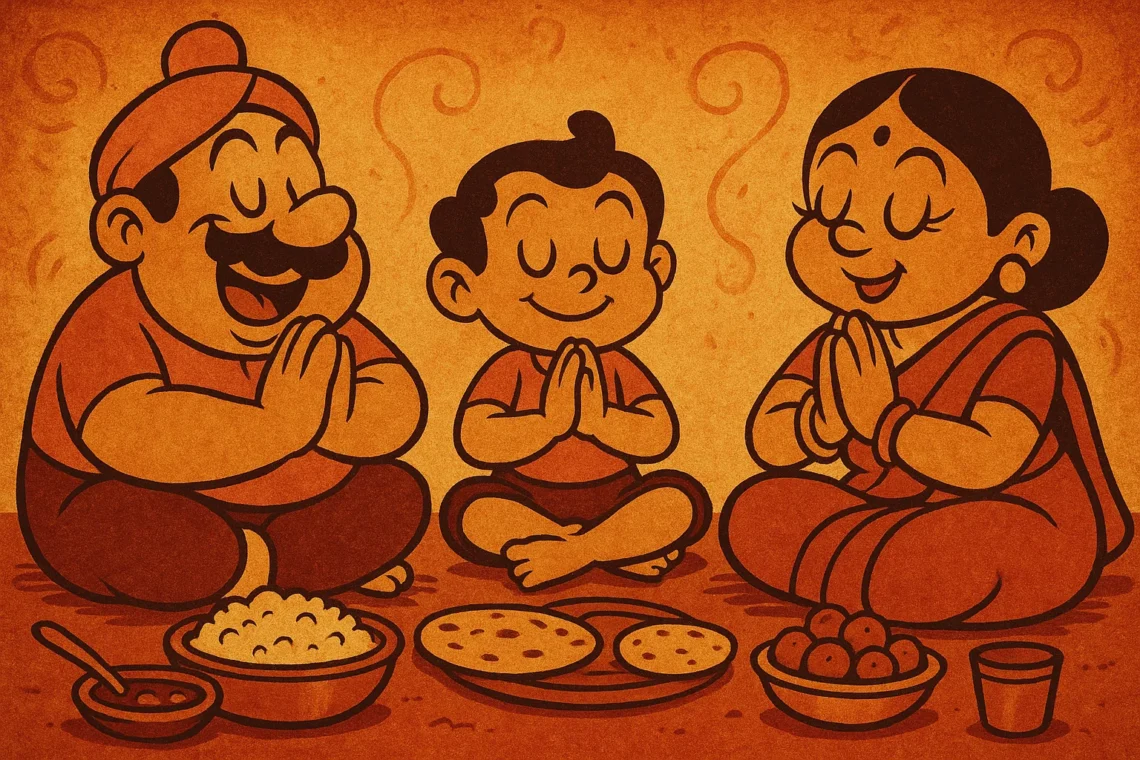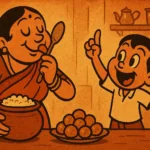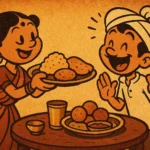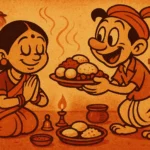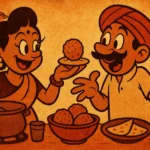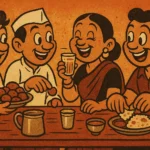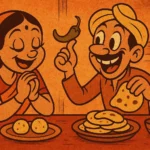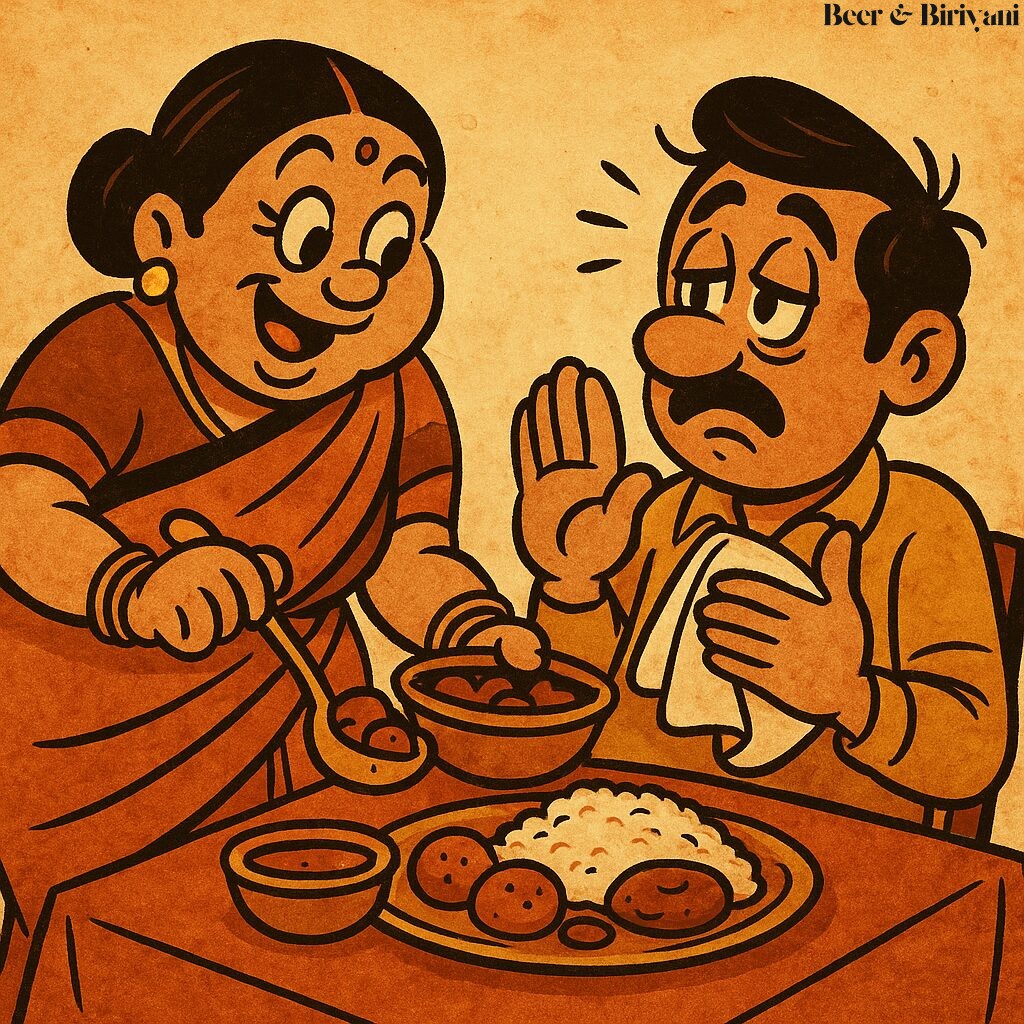Before the first bite is taken, before the first roti is torn, before the first ladle of dal hits the plate, there is a pause. A small moment of stillness. Sometimes it’s a whisper. Sometimes it’s a chant. Sometimes it’s just the closing of eyes and the gentle touching of fingertips to the forehead. But in countless Indian households, meals don’t begin with food. They begin with a prayer.
It doesn’t matter if you’re sitting on the floor in a village home or at a polished dining table in a high-rise apartment. The ritual is the same. You thank. You acknowledge. You pause. The food is sacred, but the act of receiving it? Even more so.
Folded Hands and Full Plates
For many of us, this habit started before we even knew what it meant. A parent or grandparent would remind us: “Say thank you to God.” So we would press our palms together, mumble a line we didn’t fully understand, and then dive into our meal. Over time, the words may have changed. Some replaced prayers with silence. Others made the act less visible, more internal. But the essence remained: a moment to honor the food before it became part of us.
In Tamil homes, the prayer might be a verse from the Bhagavad Gita: “Brahmaarpanam Brahma Havir…” In Marathi kitchens, it might be a soft utterance of “Naivedya swikaar karo.” In Sikh households, a simple “Waheguru” might precede the meal. Some just say “Shukriya.” Gratitude, offered in the mother tongue of the heart.
The Ritual Beyond Religion
This pause isn’t always religious. It’s cultural. Emotional. Practical. It teaches you not to take the food for granted. To notice it. To remember that someone grew it, bought it, washed it, chopped it, stirred it, served it. In homes where money was tight but love was abundant, this ritual gave the meal weight. It reminded us that even a plate of plain khichdi was a blessing.
And on festival days, when the food was special and the air smelled of cardamom and ghee, the prayer became longer. A full offering. Naivedyam placed before a deity, a tulsi leaf added to the bowl, a diya lit on the kitchen counter. You didn’t just eat. You waited. Because the gods were being served first.
Even the Floor Knows
In traditional households, especially in the south, you don’t just eat anywhere. You sit on the floor, legs folded, banana leaf placed carefully in front of you. And you don’t start eating until everyone has been served and the eldest offers a prayer. Sometimes, even the act of placing salt in a specific corner of the leaf is part of the ritual. The meal is choreography, and the prayer is the opening note.
And then, of course, there are temple meals—prasadam. There, the prayer isn’t a formality. It’s everything. The food is sacred because it’s been offered. Every bite is received with reverence. You sit in silence. You eat with your hands. And even the rustle of banana leaves feels like it belongs to something higher.
Breaking Bread, Not Just Eating
Even in modern homes, far from temples or family kitchens, the instinct remains. You serve yourself, look at the plate, and take a quiet breath. Some call it mindfulness now. But we’ve always known it. That pause is our way of connecting—to the food, to our family, to something bigger than ourselves.
When I moved to Austin, I thought I had left a lot behind. But I still find myself pausing before meals. Not always with folded hands. Sometimes with a silent smile, a thought of home, a memory of the hands that once served me piping hot dal with ghee. It’s a ritual embedded in muscle memory. A thank you to the soil, the stove, the server. A moment that costs nothing but means everything.
More Than Just a Bite
In a world that moves fast, where meals are eaten over keyboards or in parked cars, where food becomes content before it becomes nourishment, the prayer is our last thread of slowness. A reminder that food is not just fuel—it’s offering, labor, memory, story.
And maybe that’s why the best meals don’t begin with a fork. They begin with a pause. A breath. A small prayer. Spoken or silent. One that says: “This food is not mine alone. And for it, I am grateful.”
Born in Mumbai, now stir-frying feelings in Texas. Writes about food, memory, and the messy magic in between — mostly to stay hungry, sometimes just to stay sane.

